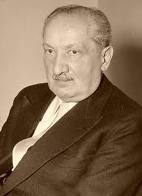West Chester University
– January 31, 2011
Introduction to Philosophy – Dr. Daniel Forbes
Existentialism and Ethics




Power Point Presentation
Existentialism in Literature, Theater,
Film & Pop Culture:
William
Shakespeare: "To be or not to be" (Hamlet, Act III, Scene I);
Franz Kafka, Fyodor Dostoyevsky, Albert Camus, Samuel Beckett, Ingmar Bergman, Federico Fellini,
Bob Dylan: "Blowing in the Wind" (Book of Kohelet,
Ecclesiastes: "All is vanity!")
Major philosophers associated with existentialism:
Friedrich Nietzsche,
Søren Kierkegaard, Gabriel Marcel, Karl Jaspers, Martin
Heidegger, Simone de Beauvoir
Basic Bibliography:
Kaufmann,
Walter. Existentialism
from Dostoevsky to Sartre. Edited, with an
introduction, prefaces, and new translations. New York: Meridian Books,
1956.
Heidegger,
Martin, Sein und Zeit
[1927]. English Translation: Being and
time. Translated by John Macquarrie
& Edward Robinson. New York: Harper, 1962.
Sartre, Jean-Paul. L’Être et le néant:
essai d'ontologie
phénoménologique [1943].
English
Trans.: Being and nothingness: an essay in phenomenological ontology. Trans. Hazel E. Barnes.
New
York: Washington Square Press, 1992.
Key concepts, topics, and problems in existentialism:
existence, meaninglessness, concrete experience, absurdity, the individual, freedom, human responsibility, anxiety (Angst, agonizes), boredom, alienation, self, choice, decision,
guilt, commitment, engagement, facticity, thrownness, nothingness, death; "existence precedes
essence"
J.-P. Sartre,
Existentialism is a Humanism (L'existentialisme est un humanisme, 1946)
Atheistic
existentialism: we humans are completely free; because there is no God to give
us an essence (a function or purpose), we must create our own essence; we are
completely responsible for our actions and are responsible for everyone else,
too.
Because of the
death of God and the human predicament, which leaves us totally free to create
our values and our world, we must exist in anguish, forlornness (thrownness, abandonment, dereliction) and despair, an
existential condition that comes from the realization that God does not exist
and we alone must face all the consequences of this.
Yet there is a
certain celebration and optimism in knowing that we are creators of our own
values: "existence precedes essence." If there were a God, our essence
would precede our existence and God would give us a function or purpose when he
created us. Since there is no God, our existence must precede our essence: we
just find ourselves existing and must then create our own essence. Humans are
nothing else but what they make of themselves. Hence, "man is condemned to
be free." // "Je suis ma liberté !" [Orestes
in Les Mouches]
J.-P. Sartre,
Being and Nothingness (L’être
et le néant, 1943)
Things = being-in-itself, en soi [ontology = general metaphysics; Gk. ta onta =
beings]
Consciousness = being-for-itself, pour soi = nothingness (néant), not a
thing, "a wind blowing from nowhere towards the world"
[phenomenology = philosophical science of the essence of
consciousness as intentionality, what is meant
by the positing of beings]
"Consciousness
is a being whose existence posits its essence, and
inversely it is consciousness of a being, whose essence implies its existence;
that is, in which appearance lays claim to being. Being is everywhere."
beings / facticity
/ things (rocks) vs. consciousness
/ negation
Being and Non-Being
That about
which I question the being participates in the transcendence of being.
Thus the question is a bridge set up between two non-beings: the
non-being of knowing in human consciousness, the possibility of non-being of
being in transcendent being.
Whatever being is, it will allow this formulation: “Being is that and
outside of that, nothing.” Negations: Not only an act of judgment (comparison)
It is the negative judgment which is conditioned and supported by
non-being.
"Nothingness haunts Being."
That means that being has no need of nothingness in order to be
conceived and that we can examine the idea of it exhaustively without finding
there the least trace of nothingness. Being is prior to nothingness and establishes the ground for it.
Dasein ("human
reality") is not in itself, not being the world
If negation is the original structure of transcendence, what must be
the original structure of "human reality" in order for it to
transcend the world? (negating activity)
Freedom and Nothingness: The being by which Nothingness comes to the
world must be its own Nothingness. Not a nihilating
act, but an ontological characteristic of the Being
required. Man is the being through whom nothingness comes to the world.
Human freedom precedes essence in man and makes it possible.
Every psychic process of nihilation implies a
cleavage between the immediate psychic past and the present. This cleavage is
precisely nothingness.
Freedom is the human being putting his past out of play by secreting
his own nothingness …if freedom is the being of consciousness, consciousness
must exist as the consciousness of freedom. It is in anguish that one gets conscious of
one’s freedom, in question for itself.
Ethical anguish: my freedom is the unique foundation of values and
nothing else – no last foundation for values. Anguish (Angst)
is the reflective apprehension of freedom by itself; the comprehension of a
possible as my possible.
Related Links:
Further info & links on
existentialism (undergrad course at U Toledo)
Sartre's existential phenomenology of liberation
Kierkegaard's existential dialectics
Phenomenology Seminar (U Toledo)
Stanford Encyclopedia of Philosophy entry on Sartre
You Tube video
clips featuring J.-P. Sartre:

|


